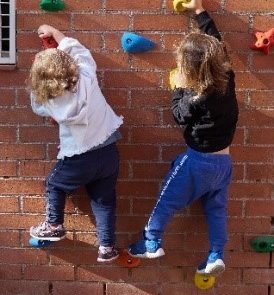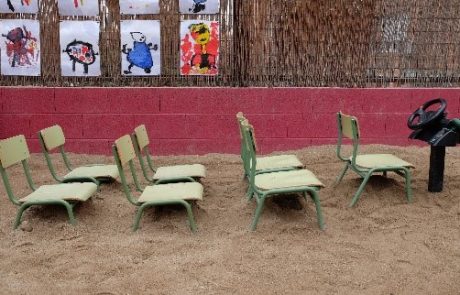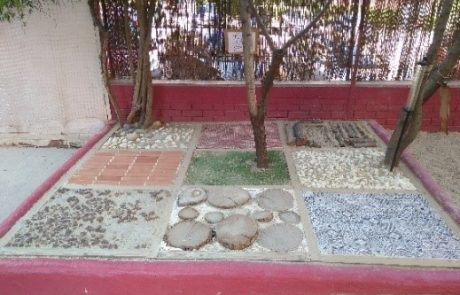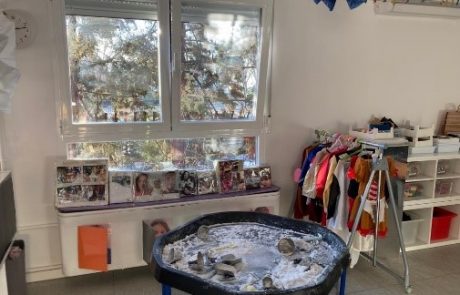Zaleo State Preschool
Spain
Zaleo State Preschool is characterised by a unique and integrating educational project as well as by the continuous search for pedagogical innovation that are reflected in its key projects in science, art, ICT and inclusion, which have meant receiving important awards and prizes both at a national and an autonomous level. It stands out for its participation and coordination, since 2010, in European projects on two fields: innovation in preschool and the inclusion of families in the teaching-learning processes.
The school opened in 1985. They teach the whole preschool stage (first and second cycles) for children between 3 months and 6 years. The school is characterized by its continuous search for pedagogical innovation, which is reflected in its key projects connected to art, science and ICT integration in preschool, its continuous team training and documenting of those experiences and projects that identify it as an educational community. We have six classrooms for students from 0 to 6 years.
Consistent with our educational principles, and as a 21st century educational community, the protagonists in the teaching-learning process in Zaleo are not only the students, but also teachers and families.
For Zaleo educating in diversity means adopting a model which facilitates learning for every child from different family, personal and social situations in order to given an educational response which allows each of them to optimally develop all their abilities. All of them have the opportunity to express themselves, create, communicate, diversify their learning and develop all kinds of competences (artistic, creative, researching, reading, musical, digital …) through educational settings recreated inside and outside the school by the teachers, using every language and resource appropriate to their ages.
About the families, one of the key pillars in the school’s educational and social project, it can be said that 85 % are from Spanish origin and 15% are from other nationalities. Their socioeconomic level is middle income. This means adjusting educational intervention to each child’s individuality, compensating learning difficulties or balancing differences which have their origin in the different social, cultural and/or economic environment. It can be said that their educational actions are aimed at compensating inequalities, teach children to read and write at early ages, and respond to the increasingly changing educational challenges.
The values and principles that guide our educational work are, among others:
- To respect the complete inclusion of children with special educational needs, setting up the convenient resources.
- To individually deal with each child’s needs, respecting the levels of maturity and emotional development by means of a holistic and procedural methodology.
- To educate children about the equality of rights, overcoming any type of discrimination.
- To respect diversity, based on acceptance of the different races, cultures and ethnic groups.
- To develop innovative projects which allow us to evaluate and make public our practice.
- To promote the participation and collaboration of the families to contribute to the better attainment of the educational objectives.
- To educate in values: education for life, peace, health, as well as respect and appreciation for the natural environment.
- To guarantee the integration in our environment through cooperation with the other institutions of the neighbourhood.
- To team-work as a key factor to unite the group when assuming common goals.
- To evaluate in order to improve and adapt to the most progressive educational currents and to the needs of our society.
- To collaborate with the families in a comprehensive education, opening their doors to culture and their surroundings, in an enriching, recreational and affective environment which helps students to grow up happy and be visible in today’s society.
Some result of what they have learned from the visits, what have been interesting:
- Flexible schedule
- sensorial big trays
- the importance of having typical indoor materials outside (painting, brushes, animals, maths, …)
- Slow time adapted to each student
- The active observation during all activities either indoor and outdoor time
- RATIO is really important for a global children care
- The importance of respecting individual rhythms
- Working the same way indoor and outdoor. Everywhere is an opportunity for learning.
- Dividing the main group into other smaller groups to carry out spontaneous activities.
- A good practise is the one that takes into account an actively listening to the students and the one that let the coordination among the teachers´ team.
- The visited schools have large and diverse spaces and materials that cover all areas of experience. They are very connected with Nature
- Plan a perfect sequence of times and activities during the scholar schedule.
- Good relationship between time for free play and specific proposals from teachers.
- The importance of a holistic approach.
- We need to plan and respect time for the assembly/circle since early ages.
- We need to improve the idea of more develop the autonomy of children from really early ages. They are able to do more things by themselves.
- Free play as a methodology to promote learning. Children moved and chose materials with freedom and promoting independence as a value in them. But, when they needed a help they asked any adult.
- Diversify learning environments and offer the opportunity of learning in different ways.
- Follow a stable sequence in routines.
- Work with different size groups depending on activities or objectives.
- Work as a team, it doesn´t matter the professional categories. Working coordinated.
- Fantasy used as a resource in the teaching-learning process.
- Respect Child’s perspective and even their preferences
- Talk a lot with children both individually and in group
- Outdoor spaces are very important and activities required a lot of skills and competences from children that they develop day by day, achieving little challenges each day.
- Outdoor gave them the opportunity of learning in other spaces and with natural materials. Sometimes they have free time and sometimes they have proposals and missions to be followed
- We don´t need to use a large number of materials to work in early ages education
- Every space should be cared according to pedagogical goals
- The idea of a compensatory focus of education in early ages, some methodologies and the use of natural materials.
- The importance of this period for later results in educational and personal life.
- There are more similarities than differences among European countries in the essential preschool methodological approach and in the way we understand how the education in this period of the Educational System should be.
- Teachers and educators should be aware about the importance of having free play time for children to decide what to play and what to play with.
- The importance of the circle/assembly just to have the time for sharing experiences and to anticipate what they are going to do.







